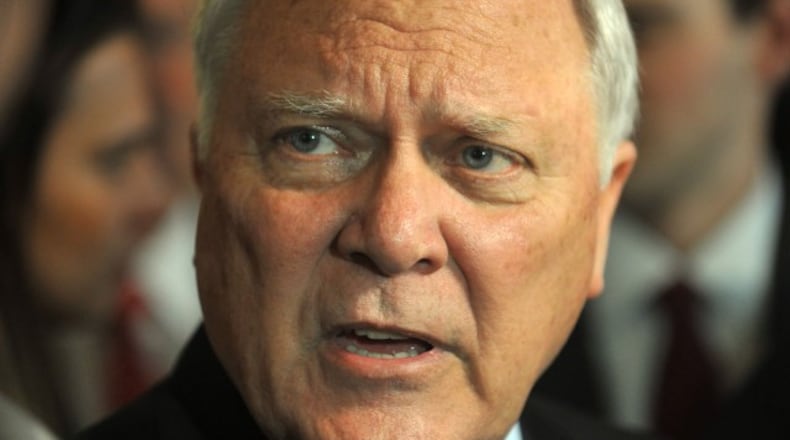The next several months could prove crucial to the future of Georgia’s children, in ways that have nothing to do with Donald Trump or Hillary Clinton.
First is a measure that's also on the ballot this November: the Opportunity School District sought by Gov. Nathan Deal. That referendum will be followed in January by the governor's long-awaited package of education reforms, including changes to the way the state distributes money to schools.
“They all fit together,” Deal said during an interview last week, speaking about OSD and the reform package. “If we don’t do something about the worst of the worst, then not only statistically are we going to continue to look bad, but in practicality, we’re going to continue to suffer the consequences of students who are being required to attend failing schools.”
With OSD, voters are asked to amend the state constitution to allow the state to intervene drastically in schools with at least three consecutive years of failing grades from the state. Deal expanded on what that failure really looks like.
“Their graduation rates are significantly lower” than the state average, he said. “Fifty-three-point-something percent of their students actually graduate.
“Their reading skills in the lower grades are significantly lower than the reading skills on average. And the average is nothing to be proud of, quite frankly, when you have almost one out of every three students leaving the third grade who are not reading at third grade level – that’s (out of) everybody. We’ve got a lot of work to do there.”
Deal also specifically linked the need to shore up the state’s worst public schools to another long-running priority of his: criminal justice reform.
“When you look at our reforms in our prisons, and you find that the most common characteristic of inmates in our state prisons that are costing us $19,000 a year on average to keep them confined … is that they dropped out of school, then if we want to do something about our crime, if we want to make our dollars go further and not spending on incarceration but on helping students be better, more productive citizens, then these kind of reforms are part of a bigger picture.”
That bigger picture, Deal suggested, is why even voters whose children attend good public schools should care about the OSD. He cited not only the cost to taxpayers of jailing criminals, but the likelihood that high-school dropouts don’t commit crimes only in their backyards.
“The state becomes the playground for criminal conduct,” he said. “They may not have a failing school in their community, but that does not mean they are immune to the consequences of children who drop out of failing schools, if they resort to a life of crime.”
The governor also chided those who, angry about his vetoes of campus-carry and religious liberty bills earlier this year, have suggested they will oppose OSD in retaliation .
”If people see that you are that vindictive, or that narrow-minded, that you’re … willing to be actively vindictive about reforms that would make our state better,” he said, “that doesn’t speak well of whatever cause you’re for.”
About the Author

